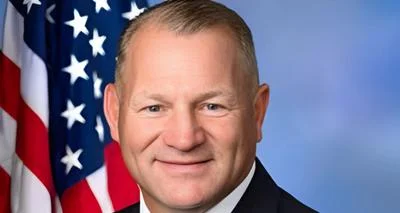The House Appropriations Committee has approved the Fiscal Year 2026 Financial Services and General Government (FSGG) Appropriations Act with a vote of 35 to 28. The legislation, which determines funding for several federal agencies and programs, now moves forward in the appropriations process.
Subcommittee Chairman Dave Joyce (R-OH) commented on the bill’s passage: "The advancement of this bill is a sign that we are one step closer to fiscal discipline and common sense within our own federal government. It caps federal spending to ensure responsible use of taxpayer dollars, modernizes technology infrastructure to increase efficiency and effectiveness, and strengthens national security by preventing bad actors from taking advantage of our financial system. I want to thank Chairman Cole for his leadership throughout this process, and I want to thank my colleagues on the Subcommittee for their hard work on this legislation."
Chairman Tom Cole (R-OK) also spoke about the measure: “The FY26 FSGG bill demands fiscal discipline and ends the Biden-era culture of progressive overreach and runaway bureaucracy. It advances President Trump’s agenda by protecting hardworking families and small businesses—defending consumer freedom, strengthening our financial and judicial institutions, and fueling economic growth. The bill also reinforces national security and community safety with investments to prevent crime in the nation’s capital, strengthen foreign business acquisition review, advance cutting-edge cybersecurity and IT modernization, and bolster anti-drug enforcement. By rooting out waste and inefficiency, it ensures every taxpayer dollar is directed toward core federal missions. Under Chairman Joyce’s leadership, this measure shows government can work smarter, act responsibly, and always put the American people first.”
The proposed legislation sets a total discretionary allocation of $23.341 billion for FY26. This amount is about $410 million less than last year’s allocation—a reduction of nearly 2%—and represents a 7.9% cut from the previous year’s enacted discretionary appropriation.
Key provisions in the bill include investments in cybersecurity upgrades across major agencies such as Treasury and Judiciary; support for “Buy American” requirements; restrictions on certain regulations affecting consumer products; measures aimed at protecting small businesses from new credit reporting mandates; prohibitions against creating a U.S. Central Bank Digital Currency; continued bans on non-citizen voting in elections; protections for religious freedom; codification of executive orders focused on reducing waste; restrictions on diversity initiatives; limitations on electric vehicle procurement for federal use; maintenance of pro-life policy riders regarding abortion funding; prohibition of gender-affirming care coverage under Federal Employees Health Benefit Program; increased scrutiny over foreign investment especially related to China; funding for anti-drug trafficking efforts like HIDTA programs targeting fentanyl interdiction; oversight of COVID-era spending streams to prevent fraud or abuse; identification of underused office space as a cost-saving measure; retention of various policy riders governing District of Columbia laws including those related to gun rights, assisted suicide legalization repeal, needle exchange program bans, contraceptive requirements conscience clauses, among others.
During markup proceedings Republicans rejected Democratic amendments that would have increased overall spending or changed law enforcement policies among other proposals. Three amendments were adopted: two from Joyce making technical changes or codifying executive orders regarding Chinese Communist Party influence prevention—and one from Aguilar addressing DACA employment eligibility.
A summary as well as text versions before amendment adoption are available through committee resources.








